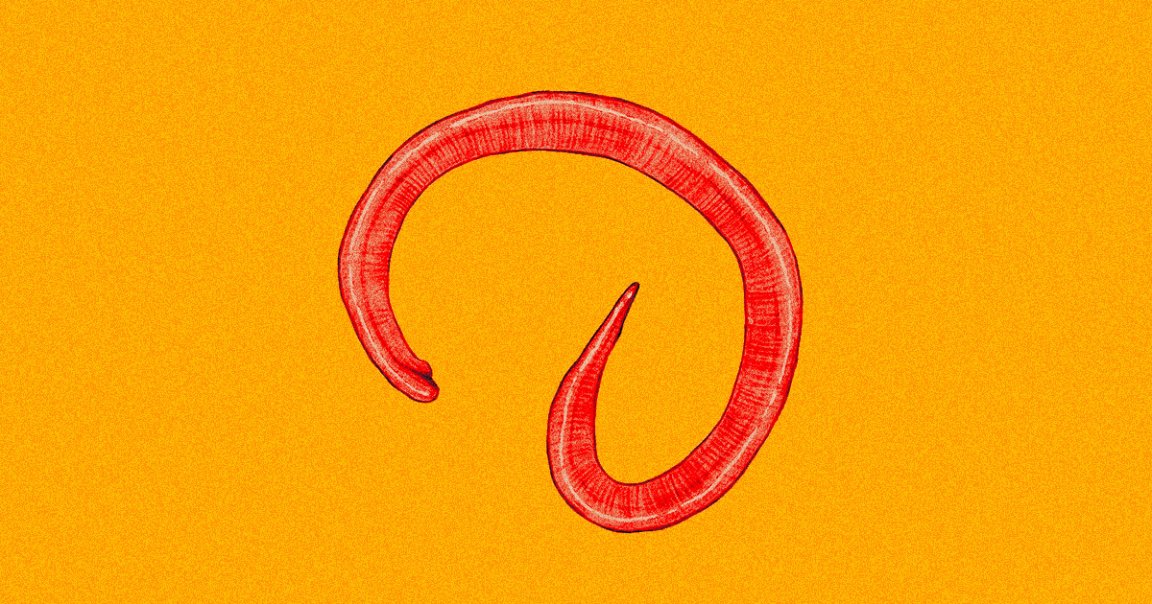
While investigating a mysterious brain lesion, a group of Aussie neurosurgeons got the surprise of their lives when they discovered a live freaking worm inside their patient’s cranium.
In an interview with the BBC, a Canberra, Australia brain surgeon described the gruesome scene that unfolded during what would otherwise have been a routine procedure — but which instead became what researchers are now calling a world-first.
The eight-centimeter-long red worm was discovered in the brain of a 64-year-old woman last year, as described in the journal Emerging Infectious Diseases, after a long bout of strange symptoms that ranged from abdominal pain and diarrhea to night sweats and depression. After being initially treated for pneumonia in early 2021, the patient’s condition did not fully improve, and by the summer of 2022, with all other options exhausted, her doctors found a strange lesion on a brain scan and finally decided to open her head up.
Dr. Hari Priya Bandi, the woman’s surgeon, said that she felt the roundworm before seeing it while biopsying her brain.
“I thought, gosh, that feels funny, you couldn’t see anything more abnormal,” Bandi said. “And then I was able to really feel something, and I took my tweezers and I pulled it out and I thought, ‘Gosh! What is that? It’s moving!'”
Everyone in the operating room was, as the neurosurgeon described, “shocked” by the worm that was “happily moving, quite vigorously, outside the brain.” What’s worse, researchers believe it may have been fully developed inside her brain for up to two months before they finally pulled it out.
Known as Ophidascaris robertsi, the red roundworm found inside the woman’s brain is most often seen in carpet pythons, which the BBC notes are non-venomous and found all over Australia. The scientists who studied the strange case believe that the woman became an “accidental host” after foraging some Warrigal greens, a type of edible wildlife that’s also popular with pythons. Those greens, parasitologist and main study author Mehrab Hossain wrote, could easily have had snake feces on them, thus contaminating the woman.
Hossain notes in the paper, that this kind of actual living brain worm has, until now, “not been reported” — and as Dr. Sanjaya Senanayake, an infectious disease expert who consulted with Bardi after the initial discovery of the worm, tells the BBC, this incredible finding doesn’t bode well.
“It just shows as a human population burgeons, we move closer and encroach on animal habitats,” Senanyake said. “This is an issue we see again and again, whether it’s Nipah virus that’s gone from wild bats to domestic pigs and then into people, whether it’s a coronavirus like Sars or Mers that has jumped from bats into possibly a secondary animal and then into humans.”
“Even if you take away the yuck factor,” the epidemiologist added, “this is a new infection never documented before in a human being.”
And in this case, as with COVID-19, that novelty definitely is not a good thing.
More on parasites: Scientists Surprised by DNA in Worms That Control Hosts’ Brains